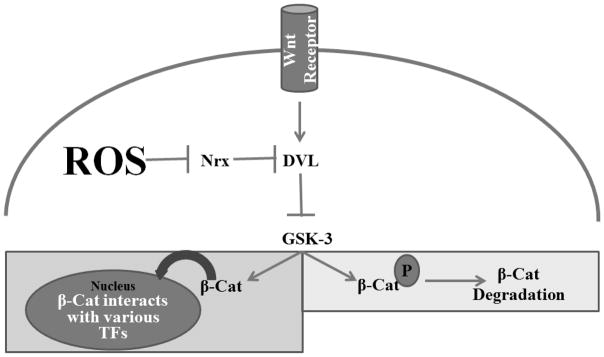Figure 6.
Simplified Wnt/ β-catenin pathway in C. elegans showing how altered ROS production could disrupt normal transcription of genes associated with neurodevelopment of DAergic neurons in C. elegans. In the absence of Wnt ligands, glycogen synththase kinase-3 (GSK-3) will phosphorylate β-catenin (β-Cat), leading to its degradation (light gray box). When Wnt ligands bind to Wnt receptors, GSK-3 is prevented from phosphorylating β-Cat, allowing it to translocate to the nucleus where it can activate various transcription factors (TFs) in the nucleus (dark gray box). The abnormal presence of reactive oxygen species (ROS) can inhibit nucleoredoxins (of which R05H5.3 and C32D5.8 are orthologs in C. elegans), which leads to the phosphorylation of β-Cat by GSK-3.

